Irving Berlin – White Christmas (from the film Holiday Inn) lyrics and piano (sheet music)
JAZZ
Irving Berlin
Irving Berlin’s Jewish family immigrated from Russia to the United States in 1891. His father was a rabbi who got a job certifying meat under Kosher Law. After the death of his father in 1896, Irving had to find work to survive; he was employed as a newsboy and also performed on the street to get money.
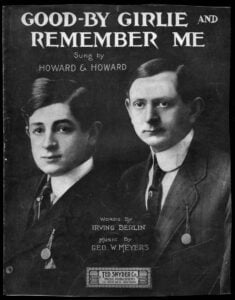
The harsh reality of having to work even menial jobs to avoid starvation left a deep mark on Berlin’s valuation of money. When he was working as a singing waiter at Pelham’s Café in Chinatown, Berlin was asked by the owner to write an original song for the café, because a rival business had its own song published. «Marie from Sunny Italy» was the result, being released soon.
Best Sheet Music download from our Library.
Although he only earned 37 cents, it opened the doors to a new career and a new name: Israel Baline was mistakenly printed as “I. Berlin” in the score. Many of her early songs, including “Sadie Salome (Go Home),” “That Mesmerizing Mendelssohn Tune,” and “Oh How That German Could Love,” achieved modest success both in sheet music, on recording, and on the vaudeville stage. , or as interpolations in various shows; but it was “Alexander’s Ragtime Band,” written in 1911, that catapulted him into one of Tin Pan Alley’s biggest stars.
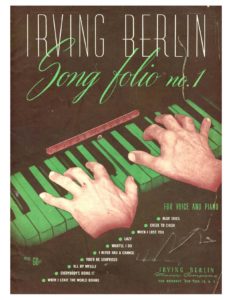
Following the success of “Alexander’s”, Berlin was rumored to be writing a ragtime opera, yet he produced his first full-length work for the musical stage, “Watch Your Step” (1914), starring Irene and Vernon Castle, the first musical comedy in making penetrating use of syncopated rhythms.
A similar show titled “Stop! Look! Listen!» followed that in 1915. In 1917, during World War II, he entered the US Army and staged a musical revue entitled Yip Yip Yaphank while at Camp Upton in Yaphank, New York. Billed as “a military mess cooked up by the boys from Camp Upton”, the cast of the show was made up of 350 members of the armed forces.
The revue was a patriotic tribute to the US military, and Berlin composed a song titled “God Bless America” for the show, though he ultimately made no use of it. When it was performed years later, it became so popular that it was suggested that it could become the National Anthem, that is, a kind of national song.
It has remained until today as one of the most successful songs and one of the best known throughout the United States. Particularly remembered is the interpretation that it was made after the terrorist attack of September 11, 2001, when members of Congress sang it on the steps of the Capitol. Some songs from Yaphank’s magazine were later included in the 1943 film “This Is the Army” which also featured other Berlin songs, both the film’s title song and a cover of “God Bless America” by Kater Smith.
Please, subscribe to our Library.
If you are already a subscriber, please, check our NEW SCORES’ page every month for new sheet music. THANK YOU!
After the war, Berlin built his own theater, the Music Box, as a venue for annual revues featuring his latest songs; the first such magazine was “The Music Box Revue of 1921”. The theater is still in use, occasionally. Although most of his works for the Broadway stage took the form of revues — collections of songs with no common theme — he wrote a few book shows.
The Cocoanuts (1925) was a comedy, with a cast that included, among others, the Marx Brothers. Face the Music (1932) was a political satire to a book by Moss Hart, and Louisiana Purchase (1940) was a satire of a southern politician, obviously based on the exploits of Huey Long.
The show featured a succession of hit songs, including “Easter Parade,” “Heat Wave” (presented as the weather forecast), “Harlem on My Mind,” and what is perhaps their most powerful ballad, “Supper Time,” a tormented song about racial bigotry, with an unusual weight in a musical revue and which was sung by Ethel Waters, a magnificent singer of color, in a heartbreaking interpretation.
During World War II, after receiving permission from General George Marshall, Berlin organized a magazine made up of soldiers in the spirit of Yip Yip Yaphank. The result, This Is the Army, opened on July 4, 1942, with a cast of over 300 soldiers, and remained on the stage for three years, first on Broadway, then on a tour of the United States, and then on the Foreign.
Irving Berlin’s most successful Broadway musical was: Annie Get Your Gun (1946), produced by Richard Rodgers and Oscar Hammerstein II. Loosely based on the life of shooter Annie Oakley, the music and lyrics were written by Berlin, with a book by Herbert Fields and his sister Dorothy Fields. Berlin had been hired after the death of Jerome Kern. At first, he turned down the offer, stating that he knew nothing about hillbilly music, but the show ended up running 1,147 performances.
Annie Get Your Gun is considered the best musical in Berlin, not only because of the number of musical hits it contains, but also because its songs successfully combine the description of the characters with the help of the development of the story.
In 1927, one of Berlin’s songs, “Blue Skies”, a hit since 1926, was performed in the first talking picture in cinema history: The Jazz Singer, sung by Al Jolson. Top Hat (1935) was the first in a series of Berlin-sponsored film musicals to star popular and attractive performers (such as Bing Crosby, Fred Astaire, Judy Garland, and Ginger Rogers), with romantic storylines and a soundtrack to base of his new and old songs.
Irving Berlin did not compose in a traditional way; he used mainly the black keys of a piano. He was a composer of the music for such films as Mark Sandrich’s Top Hat (1935), Stuart Heisler’s Blue Sky (1946), and Easter Parade (1948). Among his best-known songs are “Everybody’s Doin ‘It”, “There’s No Business Like Show Business”, “White Christmas” and “Easter Parade”.
In 1968, he received the Grammy for a life dedicated to music. He was the author of more than fifteen hundred songs, becoming one of the most important composers in the United States. Although he never learned to read music beyond an elementary level, he wrote over 3,000 songs, many of which left an indelible mark on American music and culture. He produced 17 films and 21 Broadway shows, in addition to his individual songs.
List of songs written by Irving Berlin
Browse in the Library:
| Artist or Composer / Score name | Cover | List of Contents |
|---|---|---|
| Stranger Things Main Theme Piano solo arr. (Musescore File).mscz | ||
| Strauss Johann – The Blue Danube Piano solo |
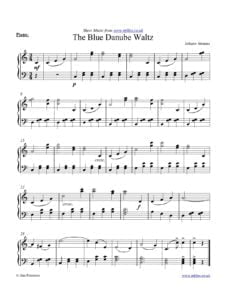 |
|
| Strauss Richard – Also Sprach Zarathustra (Trans. R. Schmalz for Piano solo) |
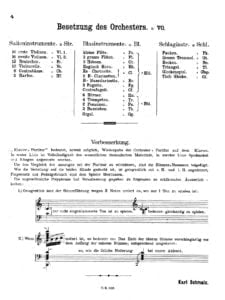 |
|
| Strauss – An Der Schönen Blauen Donau (Advanced Ver.) (Musescore File).mscz | ||
| Strauss – An Der Schönen Blauen Donau The Blue Danube (Easy Piano Solo) (Musescore File).mscz | ||
| Strauss – An Der Schönen Blauen Donau The Blue Danube (Intermediate Piano Solo) (Musescore File).mscz | ||
| Strauss Also sprach Zarathustra op. 30 (arr. for 2 pianos) |
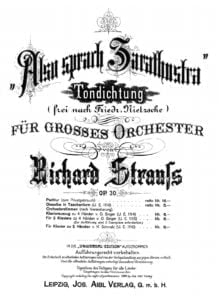 |
|
| Strauss Richard 4 Lieder Op. 27 No. 4 Morgen Musescore File.mscz | ||
| Strauss, Johann Ii An Der Schönen Blauen Donau, Op.314 Jrummel Easy Piano Solo |
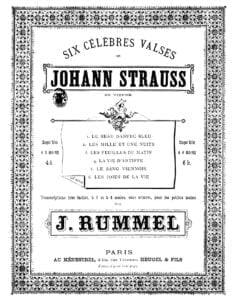 |
|
| Strauss, Johann Ii Waatzes For Piano Op. 314 (Complete) |
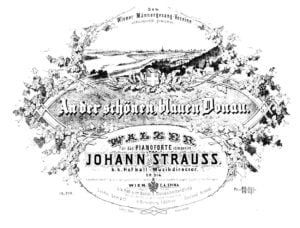 |
|
| Strauss, Johann II Die Fledermaus Suite for piano solo arr. |
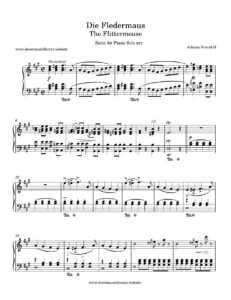 |
|
| Strauss, Johann Ii Die Fledermaus Suite For Piano Solo Arr. Musescore File.mscx | ||
| Strauss, Johann Jr. – The Blue Danube Waltz (Easy Piano Solo) |
 |
|
| Strauss, Richard Also Sprach Zarathustra, Op 30 Einleitung, Oder Sonnenaufgang (Solo Piano Arr) |
 |
|
| Stravinski, Igor – Poetica Musical Book (Español – Spanish) |
 |
|
| Stravinsky Ragtime (Piano Solo, Transcribed By The Composer) |
 |
|
| Stravinsky The Firebird Suite Piano Transcription |
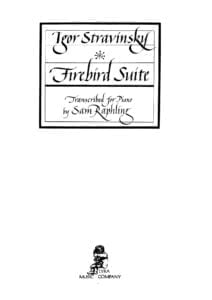 |
|
| Stravinsky Three Movements From Petrushka (piano solo arr.) |
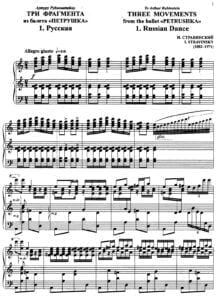 |
|
| Stravinsky – Octet for Wind Instruments |
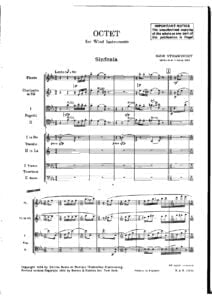 |
|
| Stravinsky – Ragtime (Piano Solo) |
 |
|
| Stravinsky – The Rite of Spring Le Sacre du printemps (4 hands, piano à 4 mains) | Stravinsky – The Rite of Spring Le Sacre du printemps (4 hands, piano à 4 mains) | |
| Stravinsky – The Rite Of Spring – piano 2 hands – arr. by Raphling |
 |
|
| Stravinsky 3 Easy pieces for piano 4 hands |
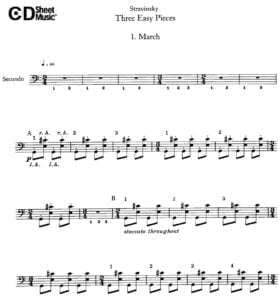 |
|
| Stravinsky 4 Etudes Op.7 |
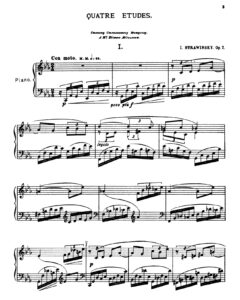 |
|
| Stravinsky And His World by Tamara Levitz (Book) |
 |
|
| Stravinsky Sonata F Sharp Minor |
 |
|
| Stravinsky Symphony of Psalms (arr. piano solo) | ||
| Stravinsky Tango |
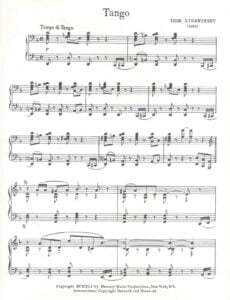 |
|
| Stravinsky The Firebird Piano Transcription |
 |
Stravinsky: The Firebird |
| Stravinsky, Igor 5 Easy Pieces [Piano 4 Hands] |
 |
|
| Stravinsky, Igor – The Rite of Spring Le Sacre du Printemps (piano solo) |
 |
|
| Straylight Run – Existentialism On Prom Night | ||
| Streabbog (Jean Louis Gobbaerts) – 12 Easy and Melodious Studies, Op 64 | ||
| Streabbog (Jean Louis Gobbaerts) – 12 Very Easy and Melodious Studies, op 63 | ||
| Streabbog Book 1 Opus 63 Twelve Very Easy And Melodious Studies |
 |
|
| Streabbog Book 2 Opus 64 12 Melodious Pieces For Piano |
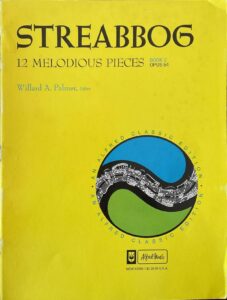 |
|
| Stride & Swing Piano The Complete Guide by John Valerio |
 |
Stride & Swing Piano Stride & Swing Piano – The Complete Guide |
| Stuart K. Hine How Great Thou Art Arr Joel Raney 6 Concert Hymns Expressions For Solo Piano |
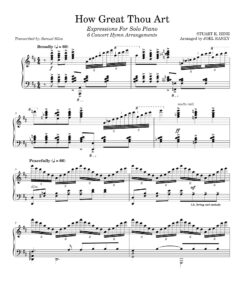 |
|
| Studio Ghibli Guitar Arrangements Best Album (Joe Hisaishi & Hayao Miyazaki) with Tablature |
 |
|
| Studio Ghibli Piano Suite |
 |
|
| Styx – Babe | ||
| Styx – Come Sail Away |
 |
|
| Succar Ya Banat (Caramel OST) Rasha Rizk | ||
| Suis-moi – Le Petit Prince OST (Hans Zimmer – Camille) | ||
| Sum 41 – Pieces | ||
| Summer of ’42 (Michel Legrand) | ||
| Summer of ’42 The Summer Knows Michel Legrand Piano & Voice |
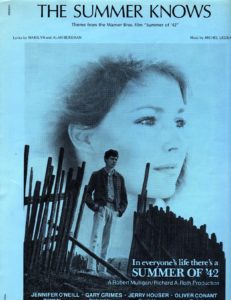 |
Summer of ’42 The Summer Knows Michel Legrand Piano & Voice |
| SUMMER OF’42 THE SUMMER KNOWS Piano (another version) | THE SUMMER KNOWS -SUMMER OF’42 | |
| Summertime – Piano arrangement Pianos Of Cha’n |
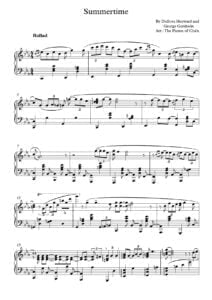 |
|
| Summertime G. Gershwin |
 |
|
| Sun Ra sheet music Collection | 1 Sun Ra index sheet music | |
| Sunday Music (100 Arrangements For Piano Solo) E. Pauer |
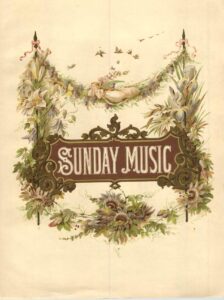 |
Sunday Music (100 Arrangements For Piano Solo) E. Pauer |
| Sunrise on Pontchartrain (The Curious Case of Benjamin Button OST) Alexandre Desplat | Sunrise on Pontchartrain | |
| Super Junior Pajama Party |
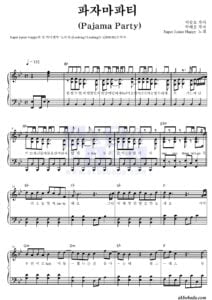 |
|
| Super Mario 64 – dire,dire docks |
 |
|
| Super Mario 64 by Koji Kondo – Piano |
 |
|
| Super Mario Bros – Main Theme | Super-Mario-Bros-Main-Theme | |
| Super Mario Bros – Main Theme Overworld |
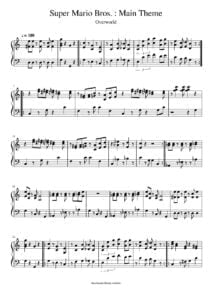 |
|
| Super Mario Bros – Main Theme Overworld (Musescore File).mscz | ||
| Super Mario Bros – Mario Main Theme – Koji Kondo | ||
| Super Mario Bros 2 Overworld Theme by Koji Kondo Piano Solo |
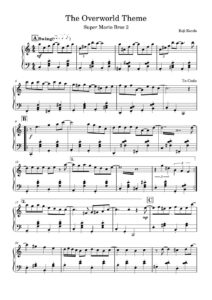 |
|
| Super Mario Bros 2 Complete Piano Arrangement |
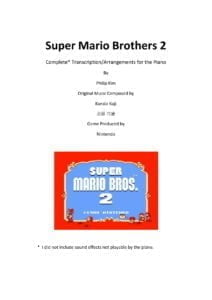 |
|
| Super Mario Bros Overworld Main Theme sheet music |
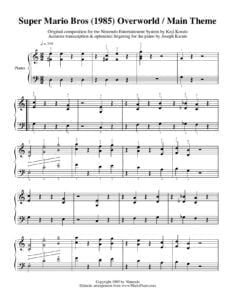 |
|
| Super Mario Bros Songbook |
 |
|
| Super Mario Bros. 3 Don’t stand on the Donuts – Piano Sheet Music |
 |
|
| Super Mario Galaxy – Aquatic Race |
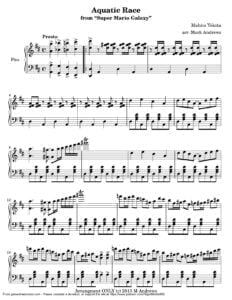 |
|
| Super Mario Galaxy – Attack! Koopas Fleet |
 |
|
| Super Mario Galaxy – Catastrophe |
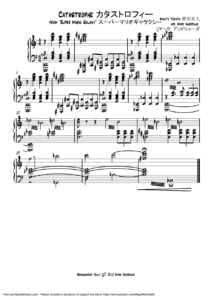 |
|
| Super Mario Galaxy – File Select |
 |
|
| Super Mario Galaxy – King Koopa’s Entrance |
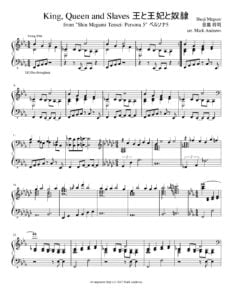 |
|
| Super Mario Galaxy – Kinopio’s Expedition |
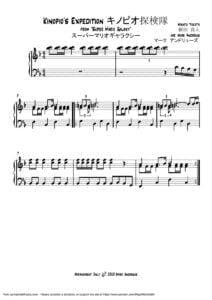 |
|
| Super Mario Galaxy – Overture |
 |
|
| Super Mario Galaxy – Peachs Castle is Stolen |
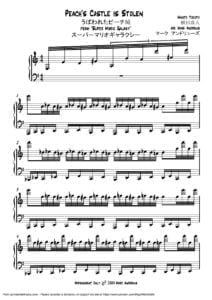 |
|
| Super Mario Galaxy – Rosetta’s Comet Observatory I |
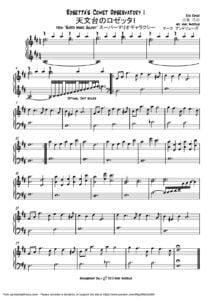 |
|
| Super Mario Galaxy – Starbit Festival |
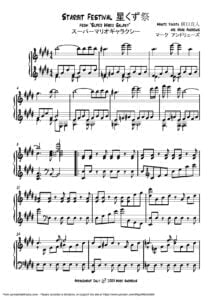 |
|
| Super Mario Galaxy Complete Sheet Music |
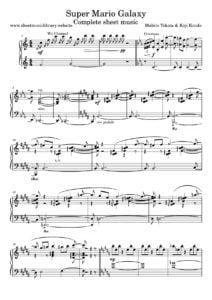 |
|
| Super Mario Galaxy Sheet Music (Musescore File).mscz | ||
| Super Mario Land – Birabuto Kingdom by Hirokazu Tamaka |
 |
|
| Super Mario World 2 Yoshis Island – Athletic |
 |
|
| Super Sight Reading Secrets by Howard Richman (Book) for keyboard players |
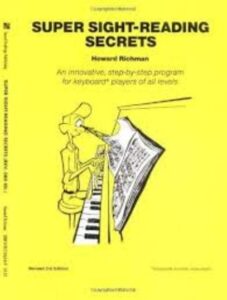 |
|
| Super Solos for Acoustic Guitar Solos (by Johnny Norris) Fingerpicking with Tablature |
 |
Super Solos for Acoustic Guitar Solos (by Johnny Norris) Fingerpicking with Tablature |
| Super Top Ten Volume (Guitar) |
 |
Super Top Ten Volume (Guitar) |
| Supercell – Sayonara Memories |
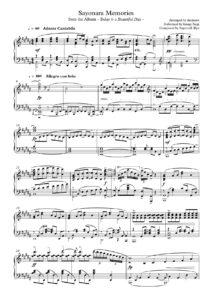 |
|
| Superhero Themes 14 of Your Favorite Heroes and She-Roes |
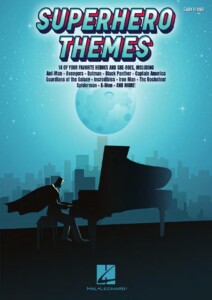 |
Superhero Themes 14 of Your Favorite Heroes and She-Roes |
| Superman Theme For Piano |
 |
|
| Supertramp – Breakfast In America |
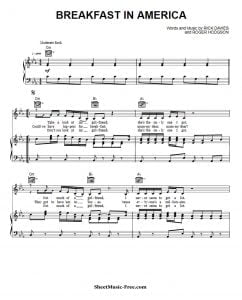 |
Supertramp Breakfast In America Book |
| Supertramp – Logical Song | ||
| Supertramp Anthology Songbook |
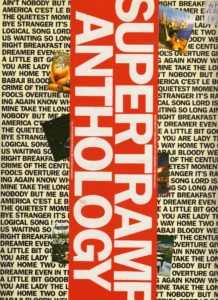 |
Supertramp Anthology Songbook |
| Supertramp Breakfast In America SongBook |
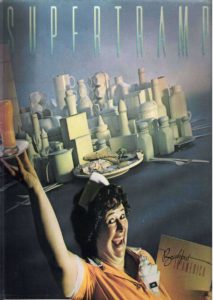 |
Supertramp Breakfast In America Book |
| Supertramp Crisis What Crisis SongBook |
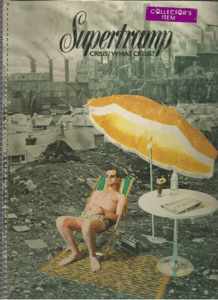 |
 |
| Supertramp Even In The Quietest Moments Songbook |
 |
Supertramp Even In The Quietest Moments |
| Supertramp Famous Last Words SongBook |
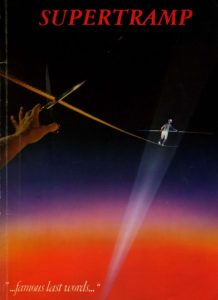 |
Supertramp Famous Last Words Book |
| Supertramp Paris SongBook |
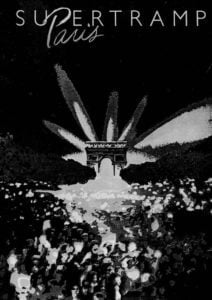 |
Supertramp Paris Book |
| Surface Pressure – Encanto (sheet music).mscz | ||
| Suzanne Ciani Adagio from the album Pianissimo | Suzanne-Ciani-Adagio 1st page | |
| Suzanne Ciani Dream Songs for piano |
 |
Suzanne Ciani Dream Songs piano |
| Suzanne Ciani New Age Piano |
 |
Suzanne Ciani New Age Piano |
| Suzanne Vega Songbook |
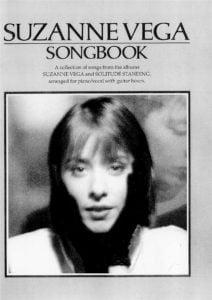 |
Suzanne Vega Songbook |
| SUZUKI – Guitar School Revised Edition (Vol 1) |
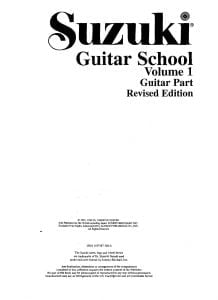 |
SUZUKI – Guitar School Revised Edition (Vol 1) |
| Suzuki Guitar (Complete Vol. 1 To 9) |
 |
SUZUKI GUITAR Vol 1-9 |
| Suzuki Piano School – Vol 07 – Mozart Handel and Paderevski |
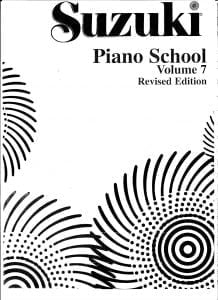 |
|
| Suzuki Piano School Volumes 1 to 7 (240 p.) |
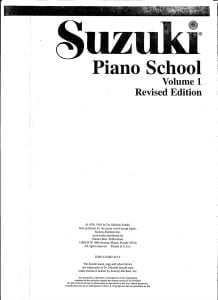 |
Suzuki 1-7 – Piano School (7 books) |
| Suzuki Tsunekichi – Omohi De – Irish Folk Song Opening Theme To The Netflix Series Midnight Diner Tokyo Stories) (Musescore File).mscz | ||
| Suzuki Tsunekichi – Omohi de – Irish Folk Song Opening theme to the Netflix series Midnight Diner Tokyo Stories) Guitar | Suzuki Tsunekichi – Omohi de – Irish Folk Song Opening theme to the Netflix series Midnight Diner Tokyo Stories) Guitar | |
| Sveinn Eythorsson – Easy Guitar Songs |
 |
|
| Swan Lake Theme – Tchaikovsky (Musescore File).mscz | ||
| Swanee River Boogie Woogie – Albert Ammons (Musescore File).mscz | ||
| Sweet Hour Of Prayer – Piano Solo arr. of 13 Sacred Songs by Marvin Goldstein |
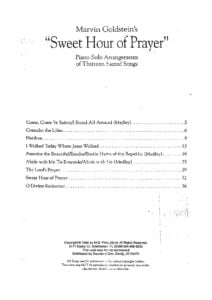 |
|
| Swing And Early Progressive Piano Styles Jazz Improvisation 3 by John Mehegam |
 |
Swing And Early Progressive Piano Styles Jazz Improvisation 3 by John Mehegam |
| Swing Low Sweet Charriot (Musescore File).mscz | ||
| Sydney Bechet Si Tu Vois Ma Mere Lead sheet music GUITAR CHORDS |
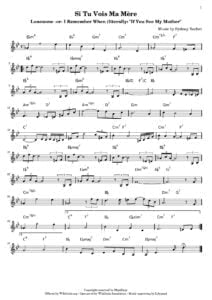 |
|
| Symphony No 40 In Gm K550 (Musescore File).mscz | ||
| Symphony No 9 In E Minor (From The New World) For Piano – 1st Movement (Adagio – Allegro Molto) (Musescore File).mscz | ||
| Symphony No 9 In E Minor (From The New World) For Piano – 2nd Movement (Largo) (Musescore File).mscz | ||
| Symphony No 9 In E Minor 4th Mov. (From The New World) A. Dvorak (Musescore File).mscz | ||
| Symphony No. 2 Third Mov. Advanced Piano Arr. (Musescore File).mscz | ||
| Symphony No. 5 – Adagietto Gustav Mahler (Musescore File).mscz | ||
| System Of A Down – Lonely Day | ||
| T – Pain – Buy You A Drink | ||
| Table for Two – Nocturnal Animals OST (Abel Korzeniowski) |
